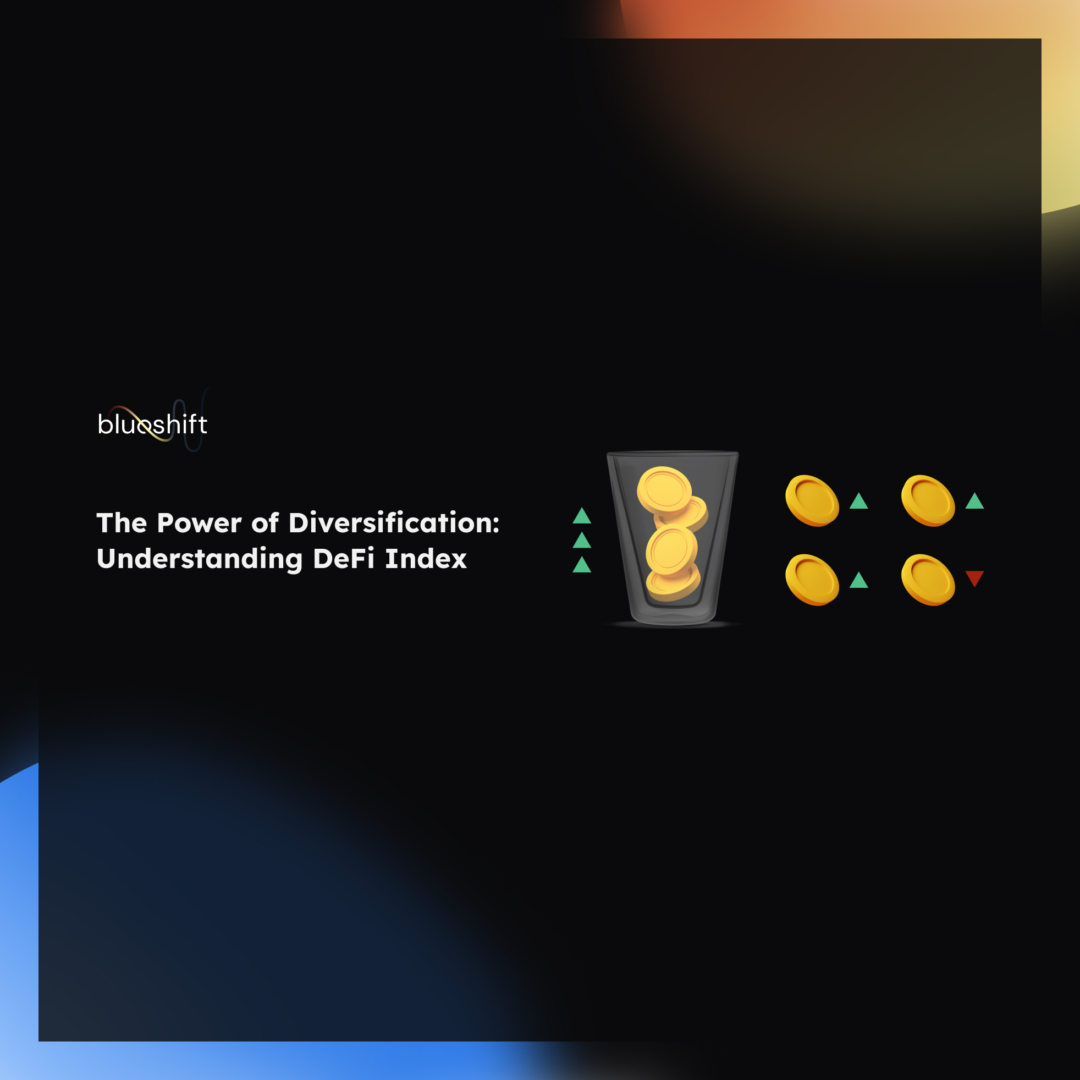The Power of Diversification: Understanding DeFi Index
Apr 17, 2023

A DeFi Index is a collection of tokens or assets part of the decentralised finance (DeFi) ecosystem. It is designed to provide users with a way to track the performance of the DeFi market as a whole, or to gain access to a diversified portfolio of DeFi projects.
A DeFi Index is typically weighted based on the market capitalisation of its constituent tokens. The tokens included in a DeFi Index may represent a variety of DeFi applications, such as decentralised exchanges, lending and borrowing platforms, derivatives markets, and more.
Providing liquidity in a DeFi Index can provide users with exposure to a broad range of DeFi projects, reducing their risk and potentially increasing their returns. It can also provide a way to participate in the growth of the DeFi ecosystem without having to select individual tokens or assets.
DeFi Indexes Compared to Traditional Exchange-Traded Funds
DeFi indexes and traditional ETFs (Exchange-Traded Funds) share some similarities in that they both provide users with a way to gain exposure to a diversified portfolio of assets. However, there are some key differences between the two.
- Underlying assets: The assets included in a DeFi Index are focused on the decentralised finance ecosystem, while traditional ETFs can cover a wide range of assets such as stocks, bonds, and commodities.
- Asset selection: DeFi Indexes are typically composed of cryptocurrencies, which are selected based on factors such as market capitalisation, trading volume, and liquidity. Traditional ETFs, on the other hand, are often constructed based on specific investment strategies or market sectors.
- Trading: DeFi Indexes can be traded on cryptocurrency exchanges and are often denominated in cryptocurrencies, while traditional ETFs are traded on stock exchanges and are typically priced in fiat currencies.
- Regulatory framework: Traditional ETFs are regulated by financial authorities such as the Securities and Exchange Commission (SEC) in the US, while DeFi Indexes are not subject to the same level of regulatory oversight.
- Volatility: Due to the nascent and volatile nature of the DeFi ecosystem, DeFi Indexes may experience greater fluctuations in value compared to traditional ETFs, which may be less volatile.
Overall, while DeFi Indexes and traditional ETFs both provide a way to gain exposure to a diversified portfolio of assets, they differ in terms of their underlying assets, asset selection, trading, regulatory framework, and volatility.
About Blueshift and Its Portfolio-Based Decentralised Exchange
Blueshift is a portfolio-based decentralized exchange that enables users to gain exposure to customised digital asset portfolios. The platform is an Ethereum Virtual Machine based DEX but also has its own layer-0 blockchain called BluesChain, which allows it to connect to other blockchains for cross-chain swaps.
Currently deployed on the Milkomeda Cardano C1 sidechain, Milkomeda Algorand A1 rollup and Kava blockchain, the DEX consists of various portfolios created with industry partners such as Multichain and Celer.
Stablecoin Index, DeFi Index, Metaverse Index and specific blockchain indexes such as the Cardano Index and upcoming Algorand Index are just a few options that users have when interacting with the platform.
Cardano Index Portfolios on Blueshift Decentralised Exchange
The Cardano Index on the Blueshift decentralised exchange is a digital asset index that tracks the performance of a basket of Cardano-based tokens.
These assets at the moment consist of leading Cardano projects in the ecosystem, including:
- VyFinance ($VYFI)
- Cornicopius ($COPI)
- NMKR ($NMKR)
- & Blueshift ($BLUES)
Cardano is a third-generation blockchain platform that offers a more efficient and secure way to execute smart contracts, decentralised applications, and other crypto-related transactions.
The Cardano Index is a weighted index, meaning the constituent tokens are included as a certain percentage of the entire index. The index is rebalanced periodically to ensure it stays up-to-date with the latest developments in the Cardano ecosystem.
Providing liquidity in the Cardano Index on the Blueshift decentralised exchange provides users with exposure to a diversified portfolio of Cardano-based tokens, including ADA, the native token of the Cardano network, as well as other tokens that are used to power various decentralised applications and services on the Cardano platform.
For those interested in learning more, make sure you join our communities on Telegram and Discord, follow all our social channels, such as Twitter and YouTube and stay up to date with the latest news and tutorials from the team.

